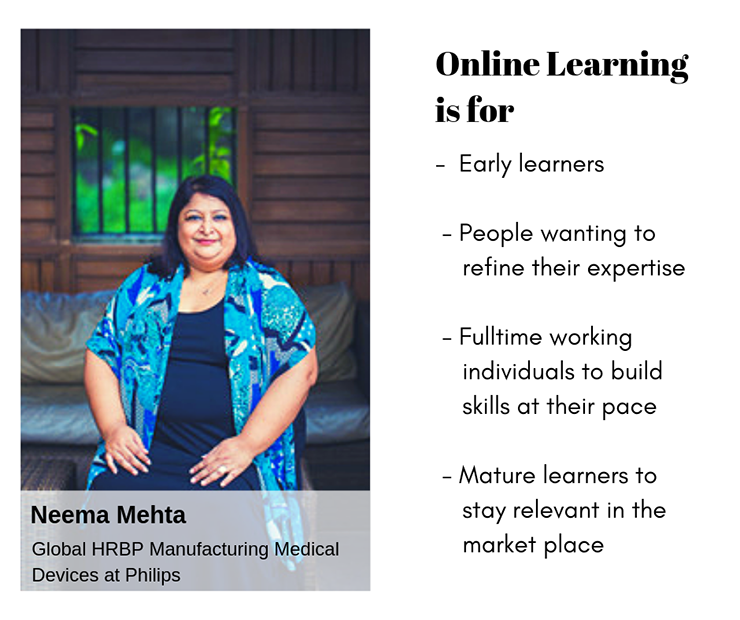The Evolution of Education
From Doing to Absorbing to Doing and Absorbing Together
Throughout recorded human history, the word ‘education’ has held different meanings. In earlier ages, a person would be considered ‘educated’ if he could effectively meet the demands of a specific, narrow ‘profession’. If a person knew metallurgy, he would become a blacksmith. If a person could grow crops with efficiency, he would become a farmer. If a person knew his way with a sword, he would enlist in the army. Even if none of these people could read or write, they were considered educated due to their profession being narrowed down to their specialization. As true and effective this method would have been a few centuries ago, it did not withstand the test of time.

Education streaming over the years
With the Industrial Revolution came mass migration from rural areas to cities, with individuals hoping to make the most of newly created jobs in factories. The following generation was brought up in urban areas and was, therefore, the first generation to experience formal schooling from early in life. In this same pattern, generation after generation, people opted for increasing levels of formal education. Education was moving in the right direction, arming more and more people with tools to create and innovate. There was a rise in the number of people enrolling in professionally-focused programs to equip them with the knowledge and know-how to forge their paths in a new world. This was positive until, at some point, it turned into a race that increasingly intensified, with society and individuals preferring certain careers over others.
For example, everyone wanted their children to become doctors or engineers or lawyers because these were secure, lucrative professions. Studying history, languages or social sciences was shunned because potential career paths were limited, which in turn meant earning potential was unclear. Schools also started streaming students to specialize according to aptitude, which in turn, led to narrow focus areas and students who prioritized memorizing content instead of applying concepts.
So, why did the old education system start failing?
First, as more families saw value in education, the higher influx of students meant that schools needed structured, efficient, and measurable ways to instruct larger cohorts. As a result, over time, instead of producing knowledgeable, curious individuals with a bright outlook towards the future, the system started producing “educated” yet knowledge- and passion- deprived sheep. Second, students were plied with theoretical knowledge but stripped of time to pursue interests outside of structured syllabi, making them susceptible to single track thinking. Since success was measured via a single score at the end of a term, parents and teachers reinforced the message of hyper focus. Third, these curriculums were slow in adapting to the changing requirements of the real world. Companies were no longer looking at just qualifications; they also wanted to see the ability to apply knowledge. Fresh graduates were suddenly expected to step into demanding roles and function to their full potential from day one. That they had zero practical experience to meet these expectations meant that productivity and economic growth took a hit. Fourth, firms in coveted, lucrative industries such as management consulting and venture capital, started actively recruiting English, social science and humanities students because their critical thinking skills added diversity to teams full of engineering and management graduates. And once again, the system was upended, leaving parents and students confused and anxious.

As important as formal education is in today’s day and age, it is not the only requirement that a young adult needs to be qualified and is certainly not the only purpose of learning. There are plenty of other factors that should be taken into account while judging an individual’s potential, most of which are not considered by educational institutions. This leaves individuals to fend for themselves when it comes to applying knowledge, forming independent opinions and making decisions. Basically, they are forced to develop both analytical and emotional intelligence in a haphazard, incomplete manner.
To paraphrase the National Employability Report Engineers 2019 from talent solutions company Aspiring Minds: Engineers score very low in next-generation technological skills such as data engineering, data science, AI and wireless. Only 2.5% of Indian engineers possess the skills in artificial intelligence that industry requires. However, the true employability figures for data science graduates drops to only 1.5% when broader skills such as cognitive thinking and communication are factored in. If India hopes to become competitive and achieve parity with international competitors, then all national stakeholders must help our engineers move beyond basic technical skills to meet the demands of 21st century industry.
How does online education fit in the picture?
The belief that individuals are forever bound to the career choice they made when they were 17, is crumbling beneath the weight of the changing times largely brought about through rapid technological advances. Just as the internet has connected billions around the world with instant communication, it has also empowered millions with the ability to restart their careers, leveraging online resources and courses to re-skill. And with mobile platforms, all of this can be done anywhere and anytime. That type of freedom is truly awesome.

None of this means college is redundant. For example, anyone who intends to build a professional career in medicine, law or architecture must attend and complete college. And for others, the opportunity to dive deep into a subject is reward enough to devote time to higher education. But, since a degree course can stretch to four years and a diploma course three, it is important to understand the returns earned on that investment. For some individuals, working directly after 10th or 12th allows for earning potential and time to discover their aptitudes and areas of interest.
Into the future, as careers cease to last a lifetime and technology evolves, creating new careers and retiring others, continuous learning through different mediums might just be the key to relevance. It allows individuals to grow and add value based on their preference of learning-online, offline or any other approach - that does not disrupt their lifestyles and allows them to effectively manage family and personal responsibilities.
For instance, an online course may only demand a few days of course work, coupled with few months of practice, to develop a new skill. This flexibility, along with reduced costs, has been the USP of online learning. Of course, enrolling in an online learning option means that the student must be digitally connected, organized and self-motivated.

One could argue that online learning can’t impart practical, applied knowledge and experience, but then neither does the traditional classroom counterpart. It is easy to push aside the traditional methods of learning, now that online education is starting to gain mainstream traction, but as earlier generations say, not everything can be accomplished through technology. Traditional learning is crucial to a child’s formative years, providing necessary physical and social training. But at the same time, online courses could work as an interactive learning companion, helping students grasp difficult concepts.
The education of the future
Going back a couple of centuries, specialization was critical to having a career or job. Today, multi-specialization, coupled with a broad outlook, is what the world needs. So, a data scientist who learned to code in Python during an internship, took an online course in digital marketing and writes poems using the Haiku Jam app is far more employable and for far longer than one who has scored a perfect 10 on 10 GPA, with no other pursuits to speak of. Not to worry though, today, there is a place for different modes and formats of education that, when layered and integrated, can empower anyone with improved efficiency and effectiveness because, being multi-skilled is the education of the future.